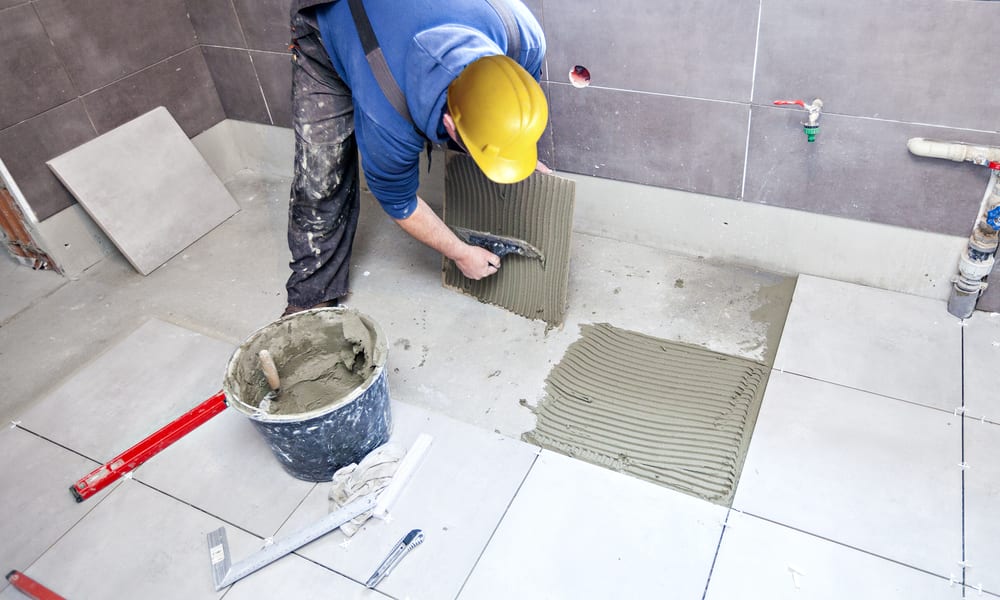A Comprehensive Guide to Tiler Careers and Opportunities in Construction
As architectural trends shift and demand grows across the construction industry, tiling continues to play a vital role in shaping both form and function. This guide outlines key aspects of tiler careers—ranging from the hands-on craft of tile installation to the types of materials and design techniques professionals often encounter. Explore how interests in detailed surface work, renovation planning, and construction standards come together in this evolving trade. For those considering new career directions or seeking insight into how roles in tiling are structured, learning more about training paths, industry certifications, and occupational growth patterns offers useful context.

Essential Tile Installation Training Pathways
The journey to becoming a professional tile setter typically begins with specialized training. Formal tile installation training programs combine theoretical knowledge with hands-on practice, covering essential skills like surface preparation, tile cutting, pattern layout, and grouting techniques. Aspiring tilers can access training through multiple avenues including vocational schools, community colleges, and apprenticeship programs. Most comprehensive programs include instruction on working with various tile materials including ceramic, porcelain, glass, and natural stone. The Ceramic Tile Education Foundation (CTEF) and the National Tile Contractors Association (NTCA) offer industry-recognized programs that provide foundational knowledge and advanced techniques for specialty installations. Many courses also incorporate waterproofing methods, substrate assessment, and problem-solving skills that prepare students for real-world challenges.
Benefits of Obtaining a Certified Tiler Course Credential
Earning certification through a recognized tiler course significantly enhances professional credibility and employment prospects. The Certified Tile Installer (CTI) program, administered by the CTEF, provides a comprehensive assessment that validates a tiler’s skillset through both written examination and hands-on performance evaluation. This respected credential demonstrates mastery of industry standards and installation methods to potential employers and clients. Beyond the initial certification, specialty credentials in areas like shower installations, large-format tile placement, or historic restoration create pathways for career advancement and higher earning potential. Certified tilers typically command higher rates than non-certified counterparts and often gain preferential consideration for high-end residential and commercial projects that require documented expertise.
Finding Construction Trade Jobs in the Tiling Sector
The construction industry offers diverse employment opportunities for qualified tile setters across multiple sectors. Residential construction companies frequently employ tilers for new home builds and renovations, while commercial contractors seek specialists for larger-scale projects in hotels, restaurants, and public buildings. Some experienced tilers establish independent contracting businesses after gaining sufficient expertise and building industry connections. Job search platforms specifically focused on construction trades, such as Construction Jobs, BuilderTrend, and specific tiling associations’ career boards offer specialized listings for qualified professionals. Networking through industry associations, attending trade shows, and connecting with material suppliers can provide access to unadvertised positions and contract opportunities. Many tile setters find that developing relationships with interior designers, architects, and general contractors leads to consistent referral business.
Creative Bathroom Remodeling Ideas Using Tile
Bathroom renovations consistently rank among the most popular home improvement projects, with tile selection playing a crucial role in both aesthetics and functionality. Contemporary bathroom remodeling ideas frequently incorporate large-format porcelain tiles to create sleek, modern spaces with minimal grout lines. For visual interest, designers often recommend accent walls featuring three-dimensional tiles, mosaic patterns, or contrasting materials that create focal points. Innovative installation techniques like continuous floor-to-wall tiling visually expand smaller spaces, while specialized tiles with slip-resistant finishes enhance safety without sacrificing style. Waterfall edges—where tile cascades seamlessly from countertop to floor—represent a growing trend in luxury bathroom design that showcases a tile setter’s precision skills. Many homeowners now request sustainable options like recycled glass tiles or locally-sourced natural stone that combine environmental consciousness with distinctive visual appeal.
Career Advancement Opportunities for Tile Professionals
With experience and additional training, tile setters can pursue numerous advancement paths within the construction industry. Many progress to supervisory positions overseeing installation teams on larger commercial projects, while others specialize in high-end custom residential work commanding premium rates. Some professionals transition into roles as estimators, project managers, or technical representatives for tile manufacturers or distributors. Teaching opportunities at technical schools or through apprenticeship programs allow experienced tilers to share their knowledge while developing new income streams. For entrepreneurially-minded professionals, establishing an independent contracting business represents a common advancement path that offers greater scheduling flexibility and profit potential. Many successful tile business owners begin with residential projects before expanding into commercial work as their reputation and resource capacity grow.
Financial Outlook and Industry Demand for Tile Setters
The financial prospects for qualified tile setters remain consistently strong across most regions. According to industry data, skilled tile professionals command varying rates based on location, specialization, and certification status. Entry-level positions typically start at $15-20 per hour, while experienced, certified professionals frequently earn $25-40 per hour, with specialty installers commanding even higher rates.
| Career Level | Average Hourly Rate | Average Annual Salary | Certification Requirements |
|---|---|---|---|
| Entry-Level Tile Helper | $15-20 | $31,200-41,600 | None/Basic Training |
| Journey-Level Tile Setter | $25-35 | $52,000-72,800 | Apprenticeship Completion |
| Certified Specialist | $35-50 | $72,800-104,000 | CTI Certification + Specialty Credentials |
| Independent Contractor | $50-80+ | $104,000-166,400+ | Business License + Insurance |
Prices, rates, or cost estimates mentioned in this article are based on the latest available information but may change over time. Independent research is advised before making financial decisions.
The Bureau of Labor Statistics projects steady demand for skilled tile setters, with particular growth in renovation and remodeling sectors. Regional construction booms in certain metropolitan areas have created competitive markets where qualified tilers can negotiate favorable compensation packages. The specialized nature of tile installation has largely insulated the profession from automation trends affecting other construction trades, making it a relatively secure career path with long-term stability prospects. As building practices continue emphasizing waterproofing and moisture management, properly trained tile professionals who understand these technical requirements will find themselves increasingly sought after for both residential and commercial projects.




